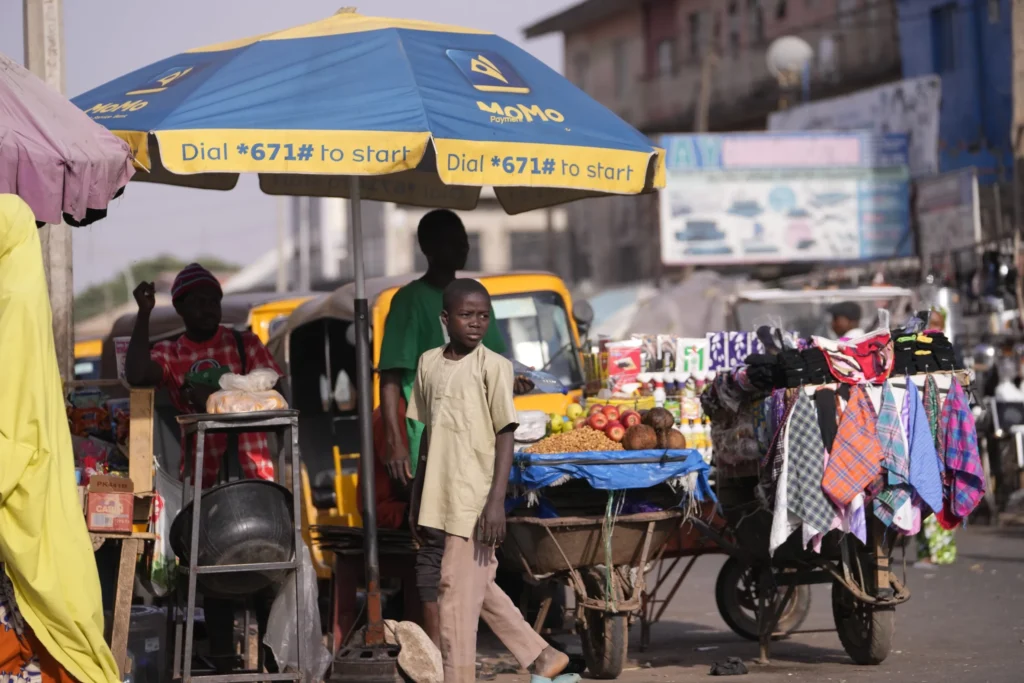Yaoundé, Cameroon – A group of Catholic-influenced Nigerian researchers, criminologists and human rights activists say they are planning to expand jihadist operations into the largely Christian southeast under the guise of a national ranching project. He blames the department.
The project has been promoted as a way to modernize agriculture and improve livestock management. The idea is to create designated areas where cattle can be raised and grazed, reducing conflicts between pastoralists and farmers.
In 2019, the Nigerian government launched a 10-year National Livestock Transformation Plan aimed at creating 119 ranches in multiple regions of Nigeria to “quell herder-farmer conflicts in the country.”
The Catholic-inspired group International Civil Liberties Union and the Rule of Law (InterSociety) said the plan was a ploy to populate the southeast with Muslim nomads who have long terrorized Christian communities. It is claimed that
RELATED: Report says Nigerian security forces care more about cows than Christians
The InterSociety said it was closely tracking recent developments in some farming communities across Nigeria. Their investigation revealed a disconcerting trend in which local leaders are being forced to abandon land parcels for animal grazing activities. But Intersociety claims these seemingly innocuous projects may have a more sinister agenda.
According to the March 11 report, the ranching project is a smokescreen for the resettlement of Fulani herdsmen.
The predominantly Muslim Fulani tribe has been at the center of long-standing tensions in Nigeria, particularly in many areas where they clash with mostly Christian local farmers over land and resources.
These conflicts escalated into violence, killing thousands of Christians and depopulating entire Christian communities. One of the worst attacks on Christians by the Fulani occurred on Christmas Day, when about 200 Christians were massacred.
At least 52,000 Christians have been murdered in Nigeria since 2009, according to InterSociety.
Last year, Fulani herdsmen were responsible for the deaths of at least 3,500 Christians, the group said.
The Inter-Society will resist plans by the governors of Nigeria's Enugu, Anambra, Abia, Imo and Ebonyi states to resettle Fulani herdsmen responsible for such jihad-inspired attacks. I swore.
Concerns are particularly high in Enugu state, where community lands are under threat of being seized “for Fulani ranching and settlements,” InterSociety said.
“The state government under Peter Mbah forced several communities in the state with large farm/lowland/forest lands to cede or hand over large parts of them for mechanized farming and cattle ranching. “This has been strongly and widely condemned as a violation of the law,” InterSociety said in the article. The report signed by the Chairman of the Board, Mr. Emeka Umeagbarasi.
He described the plan as “camouflage for jihadist Fulani settlements” in the state.
RELATED: Senators condemn Biden administration over killing of Nigerian Christians
The report said the southeastern region, which the government currently targets for pastoralism, is “too small for the Fulani”. They claim the land was ceded for a Fulani settlement and could eventually become a “jihadist Fulani settlement” disguised as a cattle ranch.
In a statement, the Inter-Society warned governors of interested states to “retreat” from such moves and warned that “any disguise aimed at establishing nomadic settlements in any part of their respective states is prohibited.” He also told them to withdraw from any “deceptions or false pretenses.''
“These movements must be eliminated across the South East or legal and popular resistance is needed,” the group said.
The cattle ranching project also faced opposition from local residents who had suffered from Fulani attacks.
Chief Johnson Okoro, an Enugu-based farmer who has lost crops to cattle and farmland to depredation by Fulani herdsmen, took exception to the cattle ranching plan.
“I am a victim. More than 6,000 palm trees were destroyed in my plantation at Amofia Agu Affa, Udi Assembly of Enugu State by Fulani herdsmen who destroyed the palm plantation and occupied the place for over four years. We lost our trees,” he told the media.
Okoro said, “I have not been to the palm plantation in my community for the past four years because the herders have taken over the plantation as a settlement,'' adding that giving land to nomads to settle in the area would be problematic. He added that he only invites
The Enugu government has openly acknowledged its intention to create modern ranches as part of its plans to improve the productivity of the agricultural industry. According to their statement, these ranches serve as a strategic tool to combat the activities of kidnappers and other criminals disguised as herders.
“The government needs to explain the design considerations for utilizing grazing, the modern method of raising cattle around the world,” he said.
“The recent viral messages and outcry by a small number of people against what they interpreted as the government’s intention (…) to seize land and give it to Fulani people under the guise of RUGA (Fulani settlements) “It's an unfortunate conspiracy of people who want that to happen,” he continued, “to make a mountain out of a molehill for political reasons.”
“The government’s intentions on this issue are clear. Armed bandits and kidnappers, who call themselves nomads, have been using our forests and agricultural lands to commit heinous crimes, kidnappings, rapes and murders for years. “The Enugu State Government has decided to discontinue these practices and introduce pastoral farming, the most modern method of raising cattle,” the statement said.
“If enacted, cattle herders and dealers will not be allowed to wander around with their animals for grazing in undesignated areas,” the group argued.
Nigeria's population is over 230 million people, split almost evenly between mostly Christians in the south and mostly Muslims in the north.
The country grapples with complex socio-political issues, and the delicate balance between agricultural development, security and human rights remains difficult.
The concerns of Catholic groups serve as a stark reminder that even seemingly benign efforts can have hidden agendas, and that vigilance is essential to protect the well-being of all citizens. There is.


